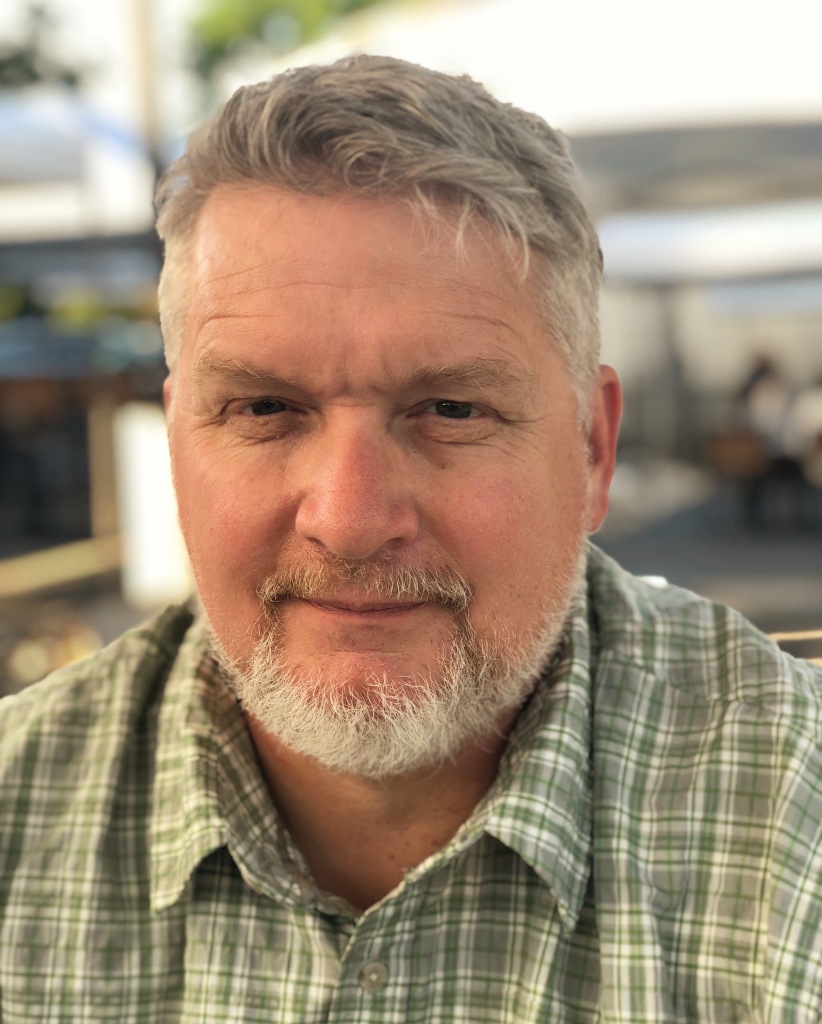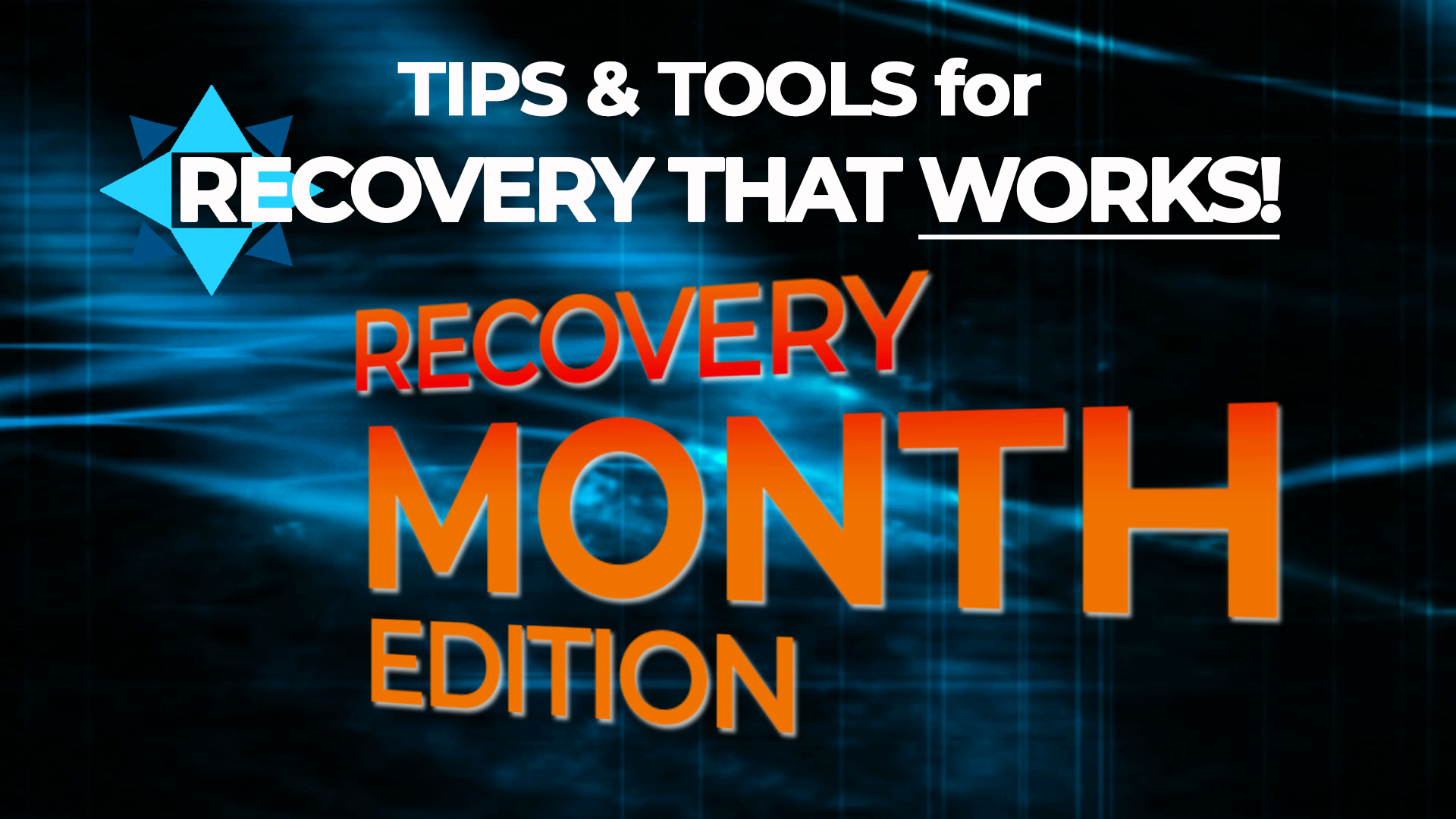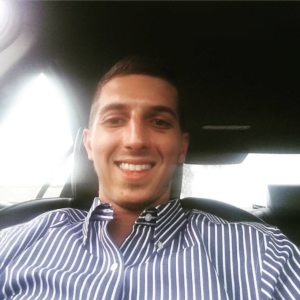Event Description
Committee Meeting
Location: Join Microsoft Teams Meeting
Event Description
Committee Meeting
Location: Join Microsoft Teams Meeting
This is the first of what I hope to be a regular series of interviews with addiction professionals about their work and how the pandemic has affected it.
Who are you?

My name is Bill Stauffer, I am a person in long term recovery living in eastern Pennsylvania. I have worked in and around the substance use care system for over thirty years in many different capacities. Recovery is something I am very passionate about. When I am not working in and around our care system, I am hanging out with my wife Julie who is an artist and our two dogs or out in the woods looking for birds or taking photographs.
What do you do professionally?
Over the last 30 years, I have run public funded outpatient and residential treatment programs and provided direct care to many people. I am also a trainer an educator and a writer. Currently I run PRO-A, the statewide recovery community organization of Pennsylvania. Our organizational mission is to: “mobilize, educate and advocate to eliminate the stigma and discrimination toward those affected by alcohol and other substance use conditions; to ensure hope, health and justice for individuals, families and those in recovery.” I am deeply committed to it.
Do you have any personal interest in addiction and recovery that you’d like to share?
Addiction and recovery have been the primary focus of my life work. Addiction has taken more family and friends from me than every other condition combined. At the same time, I have seen and been honored to be a part of the recovery experience for hundreds of persons over the years. I believe recovery can change lives and at times we can become “better than well.” We need to expand access and improve retention in recovery services, we can dramatically transform our communities and save vast resources.
Tell us about your professional experience in the area of addiction and recovery.
I have done many jobs in our care system from entry level work to program administrator. This has been an important trajectory for me. It has exposed me to program founders of our care field. As a result, I have a very well-rounded view of what this service field is like from a myriad of perspectives, most importantly from the ground level, including client because that is where my story started.
What are you most proud of?
Recovery advocate of the year award at America Honors Recovery and being honored with people like Don Coyhis of White Bison rank pretty far up there for me. But if anything, I am most proud that I have been able to do this work and to be of service to others along the way. David Best, the researcher from the United Kingdom calls recovery “the contagion of Hope.” Recovery spreads through our communities, saves lives, restores families and heals communities. This is what I have seen in my years of service and I am deeply grateful to be a part of the process and to see the positive, ripple effect that recovery has had on our communities. As discussed in the blog post Custodians of Recovery blog post with Bill White the work is about servant leadership. I am grateful for the ability to “pay it forward” and expand access to recovery as a central focus of my efforts.
What keeps you working in addiction and recovery?
A formative experience for me was spending a great deal of my time working in the field with early pioneers and people who founded programs in the late 1960s and early 1970’s. When they started their work to create a care system, care was non-existent. Prison, or psychiatric care with electro-shock therapy or frontal lobotomies was the standard of care in the 1960s. My first introduction to people who envisioned a public SUD care system was when I was a client in the mid-80s. The care I got in the 80s was entirely unavailable just 15 years earlier and was largely considered a near impossibility to create. I am alive because they took their seemingly impossible vision and made it a reality for me and millions of others. I see the importance of paying that forward and taking care in a direction that supports long term recovery. I would point to a conversation I had with Dr Robert DuPont on the five year recovery paradigm as the area of focus for my efforts in a broad sense.
How has the pandemic affected your work?
We are in the early stages of understanding the long-term ramifications of COVID-19 and how it will impact us. There is a significant increase in resumption of use within the recovery community and addiction related deaths. Recently testified in Pennsylvania about COVID-19 and its impact on our care system in front of our State House Human Services Committee. It is a really scary time. Treatment programs are closing at an unprecedented rate. Meanwhile, overdoses are rebounding, suicides are rising and alcohol consumption increasing.
What effects of the pandemic are you observing in the people you serve?
I am seeing a lot of stress and strain in relation to with the people I am working with. I am not in a direct service role, so I am seeing the secondary impact that it is having on them. What I am seeing is consistent with what the literature says that people experience who undergo prolonged disasters and mass traumas. We really need to think of people in caregiver roles and pay particular attention to them. We need to care for our SUD care givers, we are really going to need them even more moving forward.
What, if any, long term effects do you anticipate on the field?
Around 230 Million dollars of federal money from the national opioid response has poured into my home state, yet little has gotten to the ground level and invested in ways that support our care infrastructure. Our workforce, who already labored under very difficult circumstances for low pay and with significant administrative burdens was in a perilous position. The untold story of the SUD service system workforce is that in the early weeks of COVID-19 they went to work, most often without proper protective masks and equipment. Some even lost their lives in the process. Burnout is increasing, compounded by the additional stressors created by COVID-19. We are watching our workforce wither and our care infrastructure crumble. There is no doubt that there will be long term consequences from what we are seeing unfold. The problem is that similar dynamics are playing out in other sectors of our healthcare system and as a result of negative public perceptions about addiction and recovery we are a low priority for policymakers. The truth is that it is not yet too late to turn this around. These two public health emergencies are linked because people are turning to drugs and alcohol for relief. We must save our care system and the workforce that is out in the field saving lives or it will be profoundly worse.
Have you seen any benefits or new opportunities in the pandemic?
This is an opportunity to reevaluate things and a chance to re-envision how we do things and consider reprioritizing. It is very clear to me that addiction is a central facet of the COVID-19 pandemic and underpins a lot of the challenges we face. It is very clear to me that we need to get serious about recovery and focus more resources on expanding recovery through access to care and support. One of the lessons of COVID-19 is that our service community is incredibly adaptable. Virtual Recovery Support Services (VRSS) are an example of this. Very few providers were conducting services using telehealth and web-based platforms, that changed quickly following the COVID-19 lockdown. We need to have a larger conversation on how and when to use these services. Our PRO-A VRSS Ten Assurances document is intended to get people thinking how they may be used. We also need to understand who gets left behind and work to ensure that these types of service are additive to our care system and we do not end up thinking about them as a panacea and send people exclusively to VRSS.
Talks about your project to improve treatment and recovery support, what would it be?
My long-term dream project is to move our care system towards a recover focused model that addresses the multitude of social, physical, emotional, housing, financial, and other co-occurring conditions/ issues. There is growing recognition that the benchmark for a substance use disorder recovery is an orientation towards a system focused on getting people to five years of continuous recovery. We must retool our service system to support this truth. What would this look like? It would be:
- A Substance Use Care Service System that supports long term recovery for five years
- A Service System that meets the needs of young people – early intervention and comprehensive care
- Build the 21st Century workforce to serve the next generation, properly trained and compensated
- A focus on Employment, Education, and Self-Sufficiency
- Recovery Housing Opportunities to support safe and ethically run housing for people who need it as part of their recovery process

We are pleased to announce the release of our newest Tips & Tools for Recovery that Works! video National Recovery Month.
Now in its 31st year, Recovery Month celebrates the achievements made by those living in recovery. The journey to recovery is not easy, but it is worth it, and SMART Recovery is proud to be a part of it.
Help us celebrate National Recovery Month by supporting SMART Recovery in our mission to ensure everyone gets the opportunity to live life beyond addiction!
Click here to watch this video on our YouTube channel
Subscribe to the SMART Recovery YouTube Channel
Video storytelling is a powerful tool in recovery, and we are proud to share our SMART Recovery content free-of-charge, available anywhere, on any device. Our videos hope to inform, entertain, and inspire anyone in the recovery community.
Subscribe to our YouTube channel and be notified every time we release a new video.
Subscribe To Our Blog
Join our mailing list to receive the latest news and updates from the SMART Recovery Blog.
You have Successfully Subscribed!
In celebration of National Recovery Month, Fellowship Hall will be highlighting the stories of some of our incredibly inspiring alumni and staff members on social media and here on our blog. It is our hope that in sharing these stories, we break the stigma surrounding drug and alcohol addiction. With knowledge, we can advocate for the proper treatment of ourselves and loved ones that may struggle with the disease.
***

What comes to your mind when you think of your High School experience? Do you think back to your early teens—walking halls lined with lockers and laughing after school with friends? Do you remember the deep desire to find your “place” among your peers — your need to fit in? Fellowship Hall Alumni, Trent C, recalls these years as the beginning of his life-long battle with substance use disorder.
“When I think back, I didn’t really have anything in my childhood that was traumatic, I had a good family, and a great upbringing,” Trent said. In ninth grade, he moved to North Carolina and began a new school where he knew no one. He explained that at that young age, he was insecure, lacked true decision-making abilities, and was only focused on “fitting in” with a social group, especially one that he perceived as the “popular” crowd. Unfortunately for him, the group of teens he found himself amongst were actively using and selling drugs. At just 15 years old, Trent was using, selling, and would go on to live this way until he was almost thirty.
Despite his use of substances, Trent earned an academic scholarship to the University of South Carolina. However, instead of focusing on his academics in college, he stayed chained to the same life he was living in high school — one wrought with partying and using. “My so-called ‘friends’ from high school were seemingly doing well, but they were all using substances, and using me to get them. In my mind, I felt like I had all these great friends because I was always invited to and going to the parties in college, but in reality, everyone was just using me to get what they wanted, and to feed their addiction. Truthfully, I was doing the same thing,” he said.
Trent said that neither losing his scholarship nor getting arrested was enough to motivate him to permanently change his ways. In fact, Fellowship Hall was the fourth facility he completed treatment at. Each time prior he was going to treatment to appease or serve others in his life — to keep his girlfriend happy, to “get his parents off of his back,” but never to truly get well.
“Unfortunately for me, it took a lot. There was no big huge rock-bottom moment or event that motivated me to turn my life around. I just woke up one day and realized I was almost thirty years old doing the same things I had been doing since high school. I thought to myself, ‘do you want to keep living like this for the rest of your life? Or do you want to actually do something about this?’ ”
During his t ime in treatment at the Hall structured days created stability where he formed lasting positive habits for himself such as daily meditation, prayer, physical activity, and going to meetings. He also attributed his success to his counselor.
ime in treatment at the Hall structured days created stability where he formed lasting positive habits for himself such as daily meditation, prayer, physical activity, and going to meetings. He also attributed his success to his counselor.
Trent became close to a guest who finished his treatment one week ahead of Trent. In the week while Trent was still in treatment, and his friend had discharged, his new friend returned to use and lost his life. That’s when Trent “broke through” and understood the severity of substance use disorder. “I realized this disease and these substances were killing people, they weren’t going to just go away, and that just one bad choice to use could end up being the choice that takes your life, and that ruins the life of the people who care about you.”
 Today, at almost thirty, Trent enjoys the new life that recovery has given him. He focuses on staying spiritually fit, active in his recovery, and even active on the basketball court—he’ll happily tell you those afternoons spent playing basketball helped him make some of his favorite memories at Fellowship Hall.
Today, at almost thirty, Trent enjoys the new life that recovery has given him. He focuses on staying spiritually fit, active in his recovery, and even active on the basketball court—he’ll happily tell you those afternoons spent playing basketball helped him make some of his favorite memories at Fellowship Hall.
“This is MY recovery. I don’t know for sure that I’ll ever get another one. Once I understood that I had to submit and practice the honesty, open-mindedness, and willingness that we’re taught, it was easy for me. I began discovering myself after years of stunting my own growth because of this black hole inside me that I was filling with other things. My relationships with the people that are important to me are so much stronger and they can actually trust me again. I got my life back and I have confidence in myself now.”
Fellowship Hall is honored to be a place where our guests can find themselves and the confidence to be successful in their sobriety. Trent said that to those new to recovery, he wished to encourage them to understand that they cannot do it their own way, or alone, but if they are willing to submit, especially at Fellowship Hall, they can build a great foundation for their recovery and for the rest of their lives.
For more information, resources, and encouragement, ‘like’ the Fellowship Hall Facebook page and follow us on Instagram at @FellowshipHallNC.
About Fellowship Hall
Fellowship Hall is a 99-bed, private, not-for-profit alcohol and drug treatment center located on 120 tranquil acres in Greensboro, N.C. We provide treatment and evidence-based programs built upon the Twelve-Step model of recovery. We have been accredited by The Joint Commission since 1974 as a specialty hospital and are a member of the National Association of Addiction Treatment Providers. We are committed to providing exceptional, compassionate care to every individual we serve.
(This post was originally published on September 11, 2013)
I recently listened to an interview with Nadia Bolz-Weber. There were a lot of keepers in the interview (even for a non-believer). She’s described as a recovering drug addict. Her recovery shines through in this, “fake it till you make it” discussion:
Ms. Tippett: So a sermon of yours I wish I could have heard is “Loving Our Enemies Even If We Don’t Mean It.”
(laughter)
Ms. Nadia Bolz-Weber: Yeah, I think meaning it is overrated. I mean, I think …
Ms. Tippett: I think this is profound. I really do.
Ms. Nadia Bolz-Weber: No, I’m serious. Like, my gosh, if God’s going to wait till I mean it, that’s going to be a while, right? So I think that the key is praying for them, not like feeling warm feelings towards people who’ve hurt you or towards your enemy. I don’t think it’s about feelings. I think it’s about an action.
That was kind of neat, but what she said next really leapt out to me. [emphasis mine]
…I think that’s what the sort of love your enemies and pray for those who persecute you means. I will actually ask other people to do it for me sometimes, like it doesn’t always have to be us. And so it’s like this thing like I don’t think faith is given in sufficient quantity to individuals necessarily. I think it’s given in sufficient quantity to communities.
Wow. It reminds me of my persistent despair many months into my recovery and Dave H. telling me, “It’s okay if you don’t believe it’s going to get better, just believe that I believe it’s going to get better for you.”
This reminds me of an aha moment I had when listening to Bill White describe the recovery coaches of Project SAFE. I remember listening to him and thinking of the clients in those stories as having no protective factors–none!–only risk factors. He went on to describe the assertive support and engagement that these workers provided. I realized that these workers were becoming and creating protective factors in the lives of these women.
It also reminds me something my friend Ben often says, “Too often I fail to notice how much of the time I’m carried by others.”
What a gift it is for our profession to have access to a recovering community that, a group and one-to-one level, provides so much hope, faith and tangible support.

Lisa Gibson knows firsthand that losing a loved one to addiction is devastating. Her son Jay died in February 2018 after an alcohol-related brain injury. One source of consistent support for Lisa has been Jay’s many friends.
These friends immediately engaged in supporting the cause Jay’s family choose to highlight at the celebrations of Jay’s life in Brooklyn, NY, and Denton, TX: SMART Recovery. As a result of the outpouring of support, SMART Recovery suggested the creation of the Jay Gibson Education & Outreach Fund (Fund).
Since then, Lisa has traveled to see these friends in Denton and Brooklyn a number of times, including around Jay’s birthday last September. But, Lisa says, not this year:
This time it’s different, because of the pandemic. I’ve gotten together before with his friends in Texas and New York…I’m extremely discouraged that I’m not going to be with his friends this year.
The Fund has made a significant impact during this time of COVID-19 challenges. Much like Lisa’s current inability to get in-person support from Jay’s friends, many SMART Recovery participants are left without access to the support of in-person meetings. This has meant moving meetings online via the Zoom platform, with licensing and other costs.

The Jay Gibson Education and Outreach Fund has helped meet this critical need. In fact, there are now 70 meetings in three states that are operating through the end of the year directly because of the Fund. Thousands of people getting help, sharing their struggles, supporting each other. Lisa understands the great value that has been made possible by her tragic loss:
I think it’s a lifeline…people who are in recovery need that connection when cravings happen, that’s the beauty of the SMART meetings even before the pandemic.
You can make a donation directly to the Jay Gibson Education & Outreach Fund on the SMART Recovery website.
About SMART Recovery
SMART Recovery’s 4-Point Program® helps people recover from all types of addictive behaviors, including: alcohol abuse & addiction, drug abuse & addiction, substance abuse, gambling addiction, and addiction to negative activities.
SMART Recovery sponsors face-to-face meetings around the world, and daily online meetings. In addition, our online message board provide forums to learn about SMART Recovery and obtain addiction recovery support.
Visit www.smartrecovery.org to learn more.
Subscribe To Our Blog
Join our mailing list to receive the latest news and updates from the SMART Recovery Blog.
You have Successfully Subscribed!
Exciting News for Juvenile Drug Treatment Courts
NADCP is pleased to announce the full launch of the Juvenile Drug Treatment Court Training and Technical Assistance Program, a three-year project funded by the Office of Juvenile Justice and Delinquency Prevention (OJJDP).
In partnership with the National Council of Juvenile and Family Court Judges, NADCP’s National Drug Court Institute (NDCI) will work to enhance the effectiveness and impact of juvenile drug treatment courts (JDTCs), including implementing best practices and assisting courts in building recovery capital and supports for youth and families. Our overall goal? To help JDTCs contribute to healthy youth and safer communities.Browse our new website to learn more! Check back often, as we will continually update the page with new resources, opportunities, and information.
You can request training and technical assistance (TTA) for your program! Using OJJDP’s TTA360, you can access statewide, multi-team, or single team in-person or virtual trainings. TTA360 allows you to request TTA from NADCP, NCJFCJ, or any of OJJDP’s providers.
We’ve developed a comprehensive Listserv for JDTCs. This peer-to-peer networking and information-sharing platform for court professionals will allow you to connect with the JDTC community, share ideas, and access support from experts in the field.
The post Exciting News for Juvenile Drug Treatment Courts appeared first on NADCP.org.
Event Description
Two additional Listening Sessions have been scheduled to provide Guardians and members of the NC Aging Coalition the opportunity to share their perspectives on the systems and services that support individuals with disabilities in North Carolina. To date the Technical Assistance Collaborative, TAC, has facilitated 13 Listening Sessions to gather input from stakeholders about the strengths, opportunities, gaps and challenges that exist. TAC has gained valuable insights these sessions. These final two sessions are intended to complete the formal process for gathering stakeholder feedback for the Service Systems Assessment, though stakeholders will have ongoing opportunities to provide input and feedback throughout development of the Olmstead Plan.
This additional session is scheduled as follows:
Date: 10/23/2020
Time: 11:30 – 1pm
Location: https://zoom.us/j/98863272336?pwd=NUVNYitsRHdEWWZCZ0h3QVdjUjU5QT09
Meeting ID: 988 6327 2336
Passcode: 579673
Event Description
Two additional Listening Sessions have been scheduled to provide Guardians and members of the NC Aging Coalition the opportunity to share their perspectives on the systems and services that support individuals with disabilities in North Carolina. To date the Technical Assistance Collaborative, TAC, has facilitated 13 Listening Sessions to gather input from stakeholders about the strengths, opportunities, gaps and challenges that exist. TAC has gained valuable insights these sessions. These final two sessions are intended to complete the formal process for gathering stakeholder feedback for the Service Systems Assessment, though stakeholders will have ongoing opportunities to provide input and feedback throughout development of the Olmstead Plan.
This additional session is scheduled as follows:
Guardianship Listening Session
Date: 10/1/2020
Time: 3pm – 5pm
Location: https://zoom.us/j/91524422837?pwd=SDFPc21lb0QxM1dmcVgzVHVJTndDdz09
Meeting ID: 915 2442 2837
Passcode: 579673

